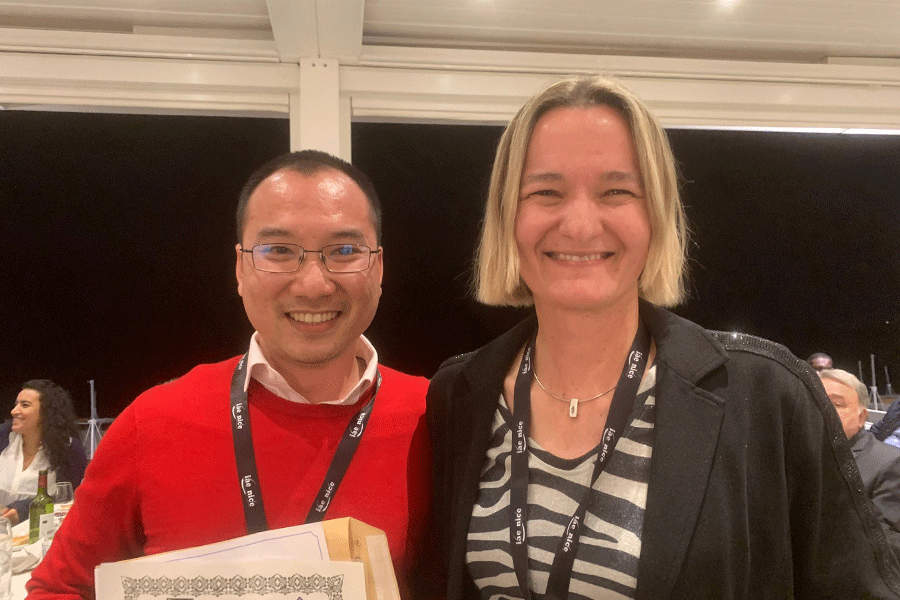- Research,
- Partnerships,
- Pedagogy,
Conference Atlas-FMI 2022: best communication price for Arthur Nguyen, iaelyon

Arthur Nguyen, Associate Professor at iaelyon and researcher at Magellan Research Center, has received the Atlas-FMI- European Journal of International Management price for its communication “the Co-evolution of Market Category and Actor Engagement in International Market” during the 12th annual conference Atlas-FMI organized in Nice from May 2nd until May 4th, 2022 on the theme “International Management and resilience”.
Arthur Nguyen is an Associate Professor in Marketing at iaelyon and member of the Magellan Research Center since September 2019. He also is the program director for the Master 1 Marketing and Sales.
Specialized in social anthropological approaches, his research work are focused on glocalization and market system dynamics, a sub-branch of marketing research, in the context of emerging countries (particularly Asian countries). His work has been presented at scientific conferences in France and abroad. He has published in the Journal of Business Research, where he also serves as an ad hoc reviewer. He is a member of the GIT-AFM Marketing and Distribution in Emerging Countries.
ABSTRACT - The Co-Evolution of Market Category and Actor Engagement in International Markets
"Research has suggested that engaging local market actors in realizing discretionary adaptation could help multinational enterprises (MNEs)' offerings appeal to local consumer cultures. However, current research does not account for the dynamic interplay between the market category to which MNEs' offerings belong and actor engagement practices. Drawing on a qualitative study of the emergence of Korean pop music (K-pop) as a particular music category in Vietnam, we reveal the process of co-evolution of actor engagement and market category. We focus on two local actors who have played a prominent role in creating the K-pop music sub-category: Vietnamese media and young consumers. We show that changes in interactions between these two groups of actors during their engagement with K-pop music lead to changes in young consumers' preferences, which, in turn, shape the evolutionary path of the K-pop music category. We identify three intersecting evolutionary phases: category assimilation, category problematization, and category detachment. Finally, we discuss the implications for research in international marketing, market categories, and actor engagement. »
Research in International Management
► Learn more
